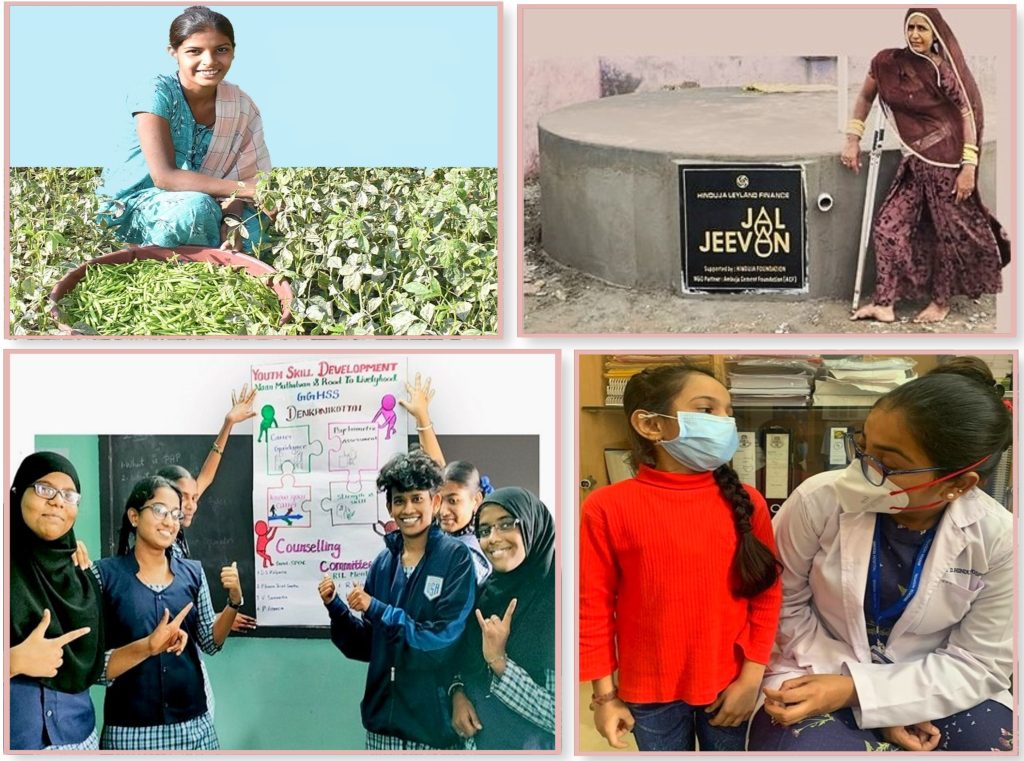
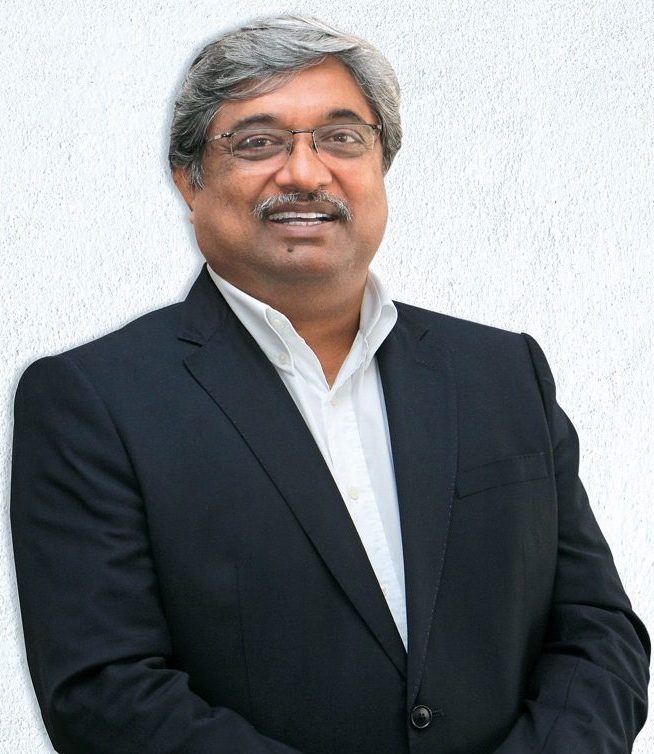 PD Hinduja, philanthropist, and founder of the Hinduja Group of Companies established the Hinduja Foundation over 50 years ago on a simple yet profound principle. He firmly believed that the Group has a moral obligation to give back to the communities that support the Group’s various businesses and contribute to its profits. Manifesting this belief, the Foundation is today a multi-faceted charitable entity led by the Hinduja family to support a common agenda for CSR across the Hinduja Group companies. Over the past few years, the Hinduja Foundation has pivoted to build upon historical work done over the decades to direct attention to the four areas of acute need in the community, viz., Healthcare, Education, Water Stewardship and Rural Development. By building upon its historical work, the Foundation has established synergies across the Group in these areas to ensure its programmes have a greater impact on improving lives and livelihoods. In an interview with CSR Mandate, Paul Abraham, President of the Hinduja Foundation, shared deeper insights into the various CSR initiatives that have impacted and bettered the lives of countless lives across the country.
PD Hinduja, philanthropist, and founder of the Hinduja Group of Companies established the Hinduja Foundation over 50 years ago on a simple yet profound principle. He firmly believed that the Group has a moral obligation to give back to the communities that support the Group’s various businesses and contribute to its profits. Manifesting this belief, the Foundation is today a multi-faceted charitable entity led by the Hinduja family to support a common agenda for CSR across the Hinduja Group companies. Over the past few years, the Hinduja Foundation has pivoted to build upon historical work done over the decades to direct attention to the four areas of acute need in the community, viz., Healthcare, Education, Water Stewardship and Rural Development. By building upon its historical work, the Foundation has established synergies across the Group in these areas to ensure its programmes have a greater impact on improving lives and livelihoods. In an interview with CSR Mandate, Paul Abraham, President of the Hinduja Foundation, shared deeper insights into the various CSR initiatives that have impacted and bettered the lives of countless lives across the country.
Could you share the mission statement on which the Foundation based its belief in reaching out to the underprivileged in India?
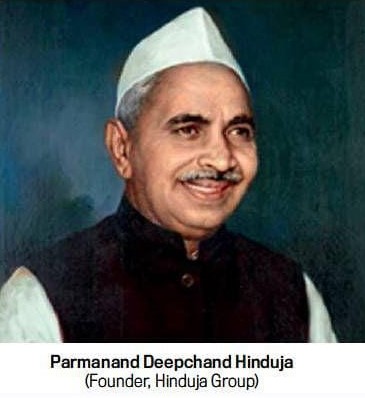 We are inspired by our founder PD Hinduja’s motto, “My dharma (duty) is to work so I can give.” The Hinduja Foundation manages various social impact initiatives and acts as a guiding force for corporate responsibility interventions across our Group companies. These include water stewardship, health, education, rural development and socio-cultural initiatives in art, culture, and heritage. The primary aim of several of our social impact initiatives is to ultimately enhance livelihoods.
We are inspired by our founder PD Hinduja’s motto, “My dharma (duty) is to work so I can give.” The Hinduja Foundation manages various social impact initiatives and acts as a guiding force for corporate responsibility interventions across our Group companies. These include water stewardship, health, education, rural development and socio-cultural initiatives in art, culture, and heritage. The primary aim of several of our social impact initiatives is to ultimately enhance livelihoods.
What are your flagship CSR programmes? What made you decide to focus your CSR activities in these areas?
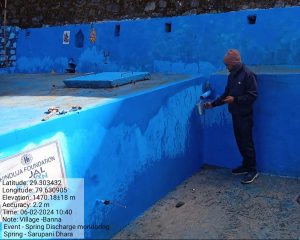 More than half the population of our country does not have adequate access to clean water. In response to this pressing demand, we have embraced water stewardship as a central theme, a commitment that resonates across all our Group companies. These activities come under the umbrella brand name Jal Jeevan.
More than half the population of our country does not have adequate access to clean water. In response to this pressing demand, we have embraced water stewardship as a central theme, a commitment that resonates across all our Group companies. These activities come under the umbrella brand name Jal Jeevan.
On the health front, in addition to running one of India’s finest tertiary care hospitals, we invest in primary care and specialised therapy areas where we find the public health system needs augmentation. Through various initiatives such as the T1D or Type 1 Diabetes Programme, delivery of quality rural healthcare, and the Mobile Healthcare Project featuring Mobile Medical Units (MMUs), we extend essential medical services to underserved communities. Our initiatives are always grounded in rigorous need assessment surveys of the communities we serve and in a spirit of partnership with the public sector, which we seek to strengthen and complement.

In 2015, we embarked on an ambitious journey spanning multiple villages, which has unfolded and evolved over the years. One of the main goals of this project is to enhance income generation by creating livelihood opportunities and improving the standard of living of the local communities.
In education, while we offer higher learning and professional qualifications at the KPB Hinduja College of Commerce in Mumbai, we are equally committed to improving primary learning outcomes both in urban government schools and at the rural level. At the Foundation and across our Group companies, we work with partners to directly implement broad-based programmes, like Road to School and Road to Livelihood.
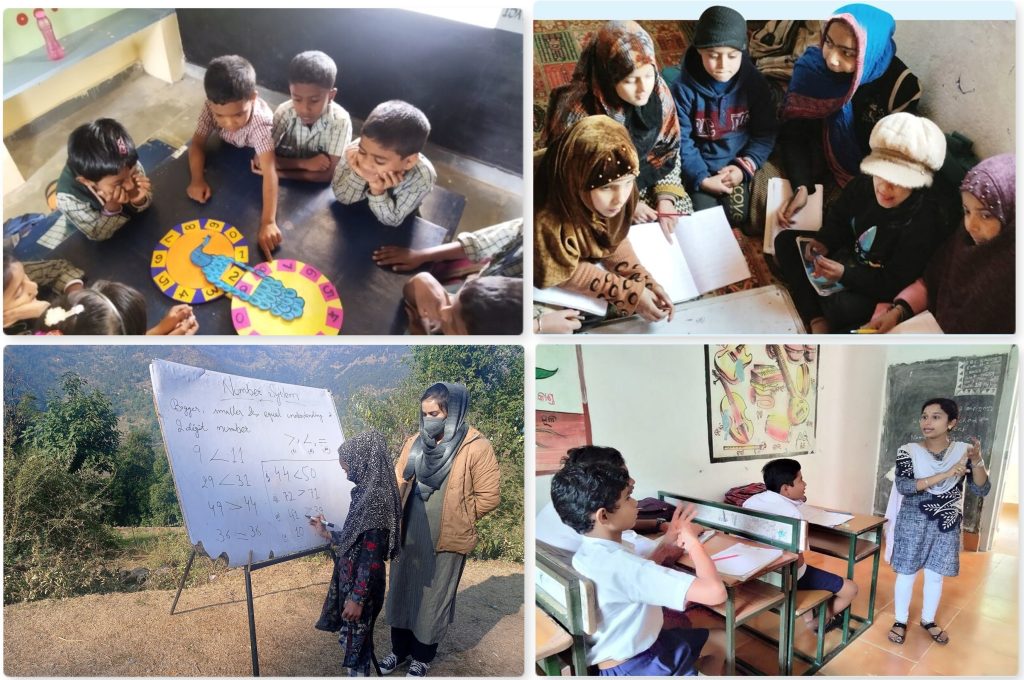
Beyond these, we have long-term projects that call for 360-degree intervention and expertise across the board – like our sustainable rural development project in the tribal belt of Jawhar in Maharashtra.
In 2015, we embarked on an ambitious journey spanning multiple villages, which has unfolded and evolved over the years. One of the main goals of this project is to enhance income generation by creating livelihood opportunities and improving the standard of living of the local communities.
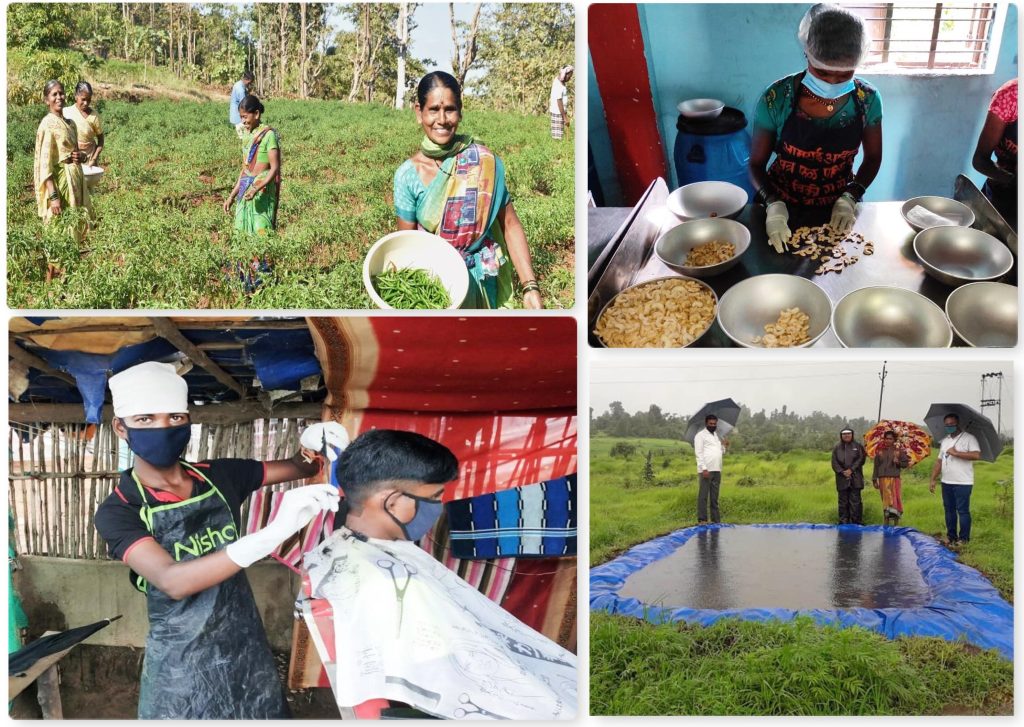
Finally, we believe that appreciating our Indian heritage can profoundly enrich our society. We are the custodians of a world-class collection of historical artefacts, including very rare ancient Indian numismatics. Also known as the Lance Dane bequest, this treasure trove is being brought to the public domain through a website, as well as publications, exhibitions and workshops.
Which are the areas where these various programmes/initiatives are implemented? Why were they chosen?
In addition to making an impact on the lives within and around the areas where our business operations are situated, we extend help wherever the need is most pressing, whether by bringing rainwater harvesting solutions to rural Rajasthan or helping small and marginal farmers in Maharashtra develop climate-resilient farming practices.
Do elaborate on the customised system followed for the best outcome and impact from each of them.
In addition to numerous field visits, we work with ImpactDash to integrate data-driven decision-making in CSR management. Together, we have built an end-to-end MIS platform that has helped us to increase the transparency, accountability, and efficiency of our CSR programmes. The platform allows us to maintain dynamic dashboards with status reports, monitor deliverables, and perform compliance checks for implementing partners which has allowed us to scale up the impacts through our flagship CSR initiatives like Road To School and Jal Jeevan.
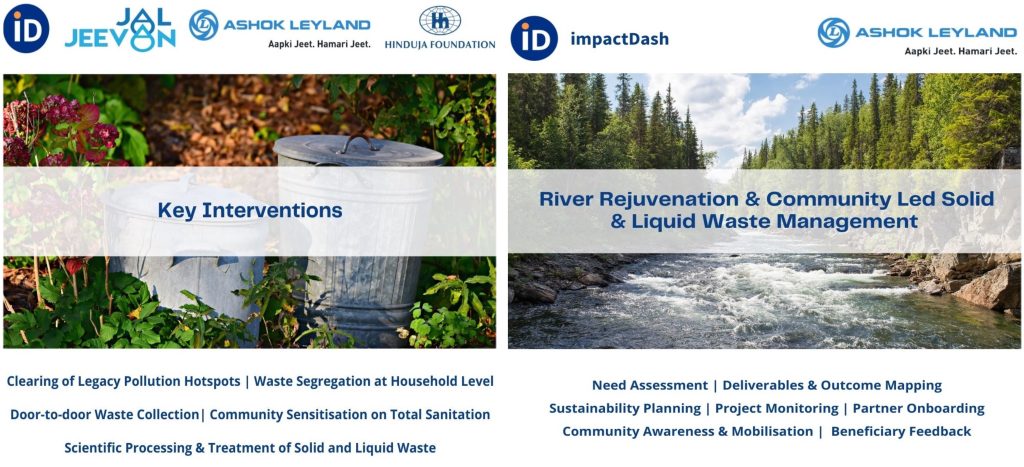
As part of our mission to ensure water security and boost climate resilience, our Jal Jeevan programme rejuvenates water bodies from village lakes to rivers. In Chennai, we started with the various lakes and wetlands surrounding the factories and plants of Hinduja Group companies in the industrialised area of Ennore. We have successfully desilted, cleaned, deepened and reinforced the embankments of ten lakes and wetlands like Thamaraikeni Kulam, Ramachandra Nagar Pond, and Thalambur wetland. These initiatives stand as bulwarks against the adverse effects of urbanisation and climate change; notably, these ten water bodies withstood 40 cm of rainfall over 24 hours during the 2023 Chennai Floods. They served as crucial buffers against the floods caused by Cyclone Michaung, safeguarding communities, infrastructure, and ecosystems while simultaneously recharging groundwater tables.
Impact Numbers:
Jal Jeevan Water Programme: We have impacted five million+ lives, restored 56 lakes and dispensed 892 megalitres of safe drinking water.
Education Programmes: We have reached 4,37,000+ students and disbursed 3,398 scholarships. Six thousand and fifteen schools have benefited from our programme.
Integrated Rural Development Programme: This programme has impacted 22,600+ lives, developed 924 hectares of wasteland, and planted 4,45,000 trees. It has also reduced distress migration by 78 per cent in Jawhar Taluka of Palghar District, Maharashtra.
T1D (Type 1 Diabetes) Programme: We are happy to share with you that we have helped 800+ children receive free insulin and treatment through our partners – KEM Hospital Pune, PD Hinduja Hospital in Mumbai, and Dr V Mohan’s Madras Diabetes Research Foundation in Chennai, through this programme.
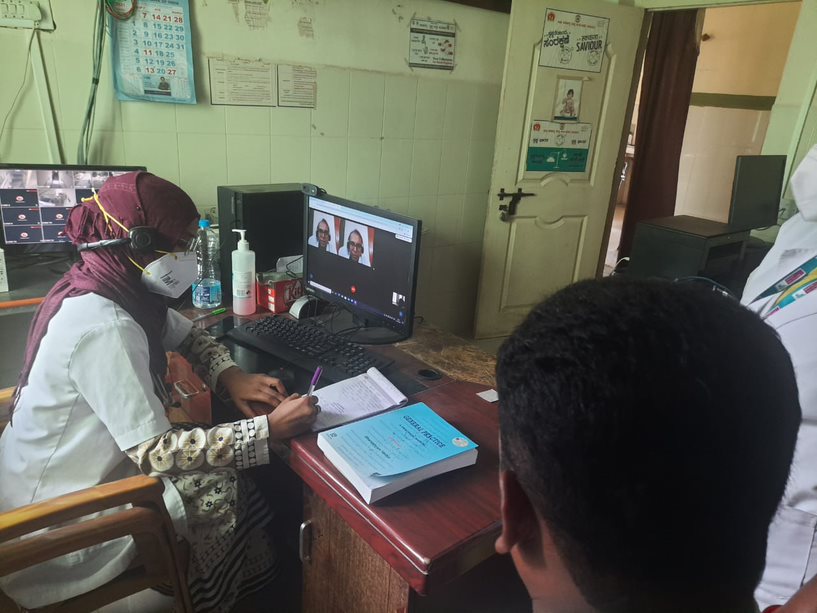 What are your upcoming projects in the healthcare sector?
What are your upcoming projects in the healthcare sector?
We have launched new collaborations with international world leaders like King’s College London to work on training and joint research in speciality areas.
 For our T1D Programme, we will continue our proud association with Hinduja Hospital Mumbai, KEM Pune, and MDRF Chennai, and we hope to extend our network of care beyond the 800+ beneficiaries we are currently supporting.
For our T1D Programme, we will continue our proud association with Hinduja Hospital Mumbai, KEM Pune, and MDRF Chennai, and we hope to extend our network of care beyond the 800+ beneficiaries we are currently supporting.
We are now looking to expand the T1D Programme to Bangalore.
Talk to us about the ambitious mission to restore and rejuvenate various lakes and wetlands in Chennai. How important is this for the city?
As part of our mission to ensure water security and boost climate resilience, our Jal Jeevan programme rejuvenates water bodies from village lakes to rivers.
In Chennai, we started with the various lakes and wetlands surrounding the factories and plants of Hinduja Group companies in the industrialised area of Ennore.
We have successfully desilted, cleaned, deepened and reinforced the embankments of ten lakes and wetlands like Thamaraikeni Kulam, Ramachandra Nagar Pond, and Thalambur wetland. These initiatives stand as bulwarks against the adverse effects of urbanisation and climate change; notably, these ten water bodies withstood 40 cm of rainfall over 24 hours during the 2023 Chennai Floods. They served as crucial buffers against the floods caused by Cyclone Michaung, safeguarding communities, infrastructure, and ecosystems while simultaneously recharging groundwater tables.
These restored water bodies foster a spirit of environmental stewardship among residents and lead the way to a sustainable future for Chennai and its citizens.
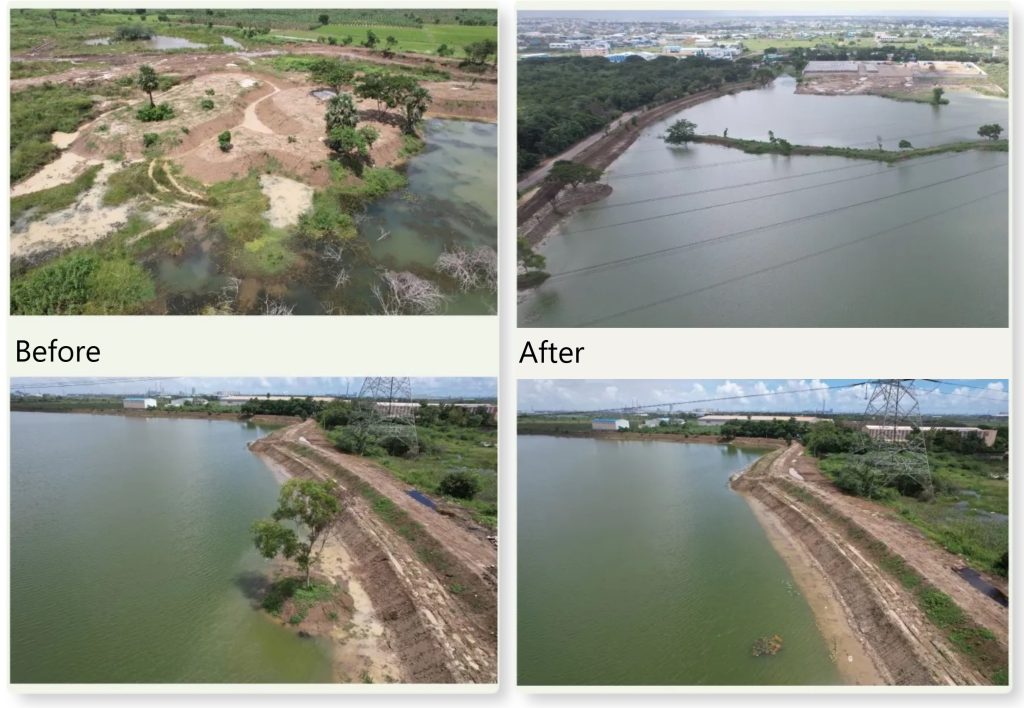
Given the importance of collaboration in delivering impactful and sustainable programmes, could you kindly share information about the NGO partners with whom you are partnering in various parts of India to implement your initiatives?
We have established strategic collaborations with institutions and partners to achieve scale and depth with our interventions. For our health programmes, we partner with PD Hinduja Hospital & Medical Research Centre, Mumbai; Dr Mohan’s Diabetes Specialities Centre and the Madras Diabetes Research Foundation (MDRF), Chennai; KEM Hospital, Pune; and Novo Nordisk, who supply our T1D Programme beneficiaries with the highest quality insulin, free of charge. We partner with various NGOs, including Ambuja Cement Foundation, Environmentalist Foundation of India, WOTR, MYRADA, Chirag and Care Earth Trust to implement our water programmes. Our education partners include the Learning Links Foundation, Language and Learning Foundation and Magic Bus. We partner with BAIF and Mukul Madhav Foundation for our integrated rural development programme in Jawhar, Maharashtra. Finally, we collaborate with the Indian Numismatic, Historical and Cultural Research Foundation (INHCRF) in Nasik for our heritage outreach and for conducting workshops.
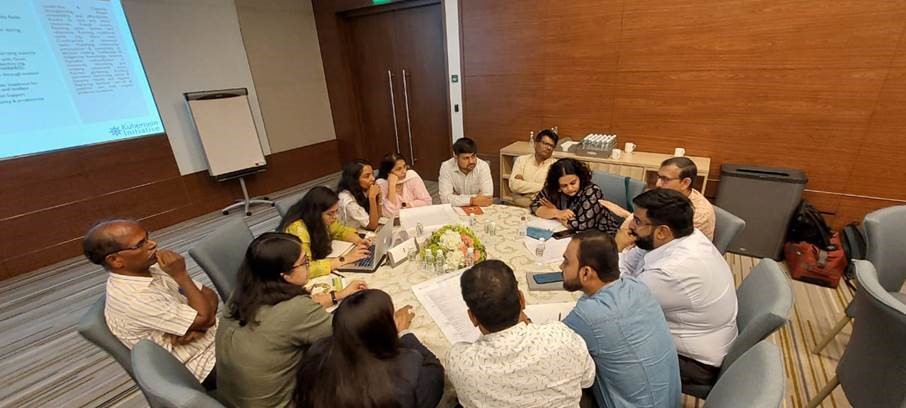
How do you divide the workload with these working partners so there are no loopholes in reaching the goal?
Partners are selected based on their ability to work at scale. While some partners are local powerhouses, like our T1D programme partners, others have more national-level capability. We believe in the collective sharing of responsibilities, and hence, we bring all partners together to re-emphasise common goals and celebrate the achievements of each of them.
Internally, are you collaborating with other Group companies to achieve sustainable growth for India?
The Hinduja Foundation is the implementing agency for rural development projects and programmes mandated by respective Company Boards as part of their CSR projects u/135 of the Companies Act 2013. We drive funding from the CSR allocations of ten other companies within the Hinduja Group, which have also collaborated to tackle various challenges. These companies encompass Ashok Leyland, Gulf Oil, Hinduja National Power, Hinduja Renewables, Hinduja Leyland Finance, Bharat Financial Services, Hinduja Global Solutions, NXTDigital, Hinduja Group Corporate, and Hinduja Tech.
Hinduja Foundation is the custodian of an invaluable archive of historical Indian artefacts, at the core of which is the Lance Dane bequest. This is a collection of 35,000 ancient Indian coins ranging broadly from 600 BCE to 600 CE, as well as paintings, bronzes, stone sculptures, beads and other artefacts collected over five decades by army veteran Lt. Col. Lance Dane. As a continuation of our Foundation’s long-standing commitment to promoting and studying Indian art and culture across the globe, we strive to take our Antiquities Collection to new venues and audiences through partnerships. The collection has been a subject of continuing PhD research. Additionally, we bring it to the larger public through the HindujaHeritage.com website, workshops and publications.
Could you share with us the projects you are undertaking to restore heritage properties?
Lakes, step wells, and other water bodies are part of the cultural history of a region besides being big tourist draws. Through our water programmes, we have restored some priceless heritage monuments like the Rani Moosi Sagar of Alwar. A marble and sandstone memorial to a queen, Moosi Rani ki Chhatri in Alwar was built in 1815 by Raja Vinay Singh in memory of Maharaja Bakhtawar Singh and Rani Moosi. The Chhatri is situated on the banks of Sagar Kund, a stepwell that is fed by the rainwater running off the surrounding Aravalli Hills. The revival of this stepwell in Alwar, completed in 2021, has become a showpiece for water and heritage conservation. It was restored with funding from Ashok Leyland, Hinduja Foundation and the Prince Albert II of Monaco Foundation, with implementation partner EFI. Today, the stepwell serves over three lakh beneficiaries in the city of Alwar.
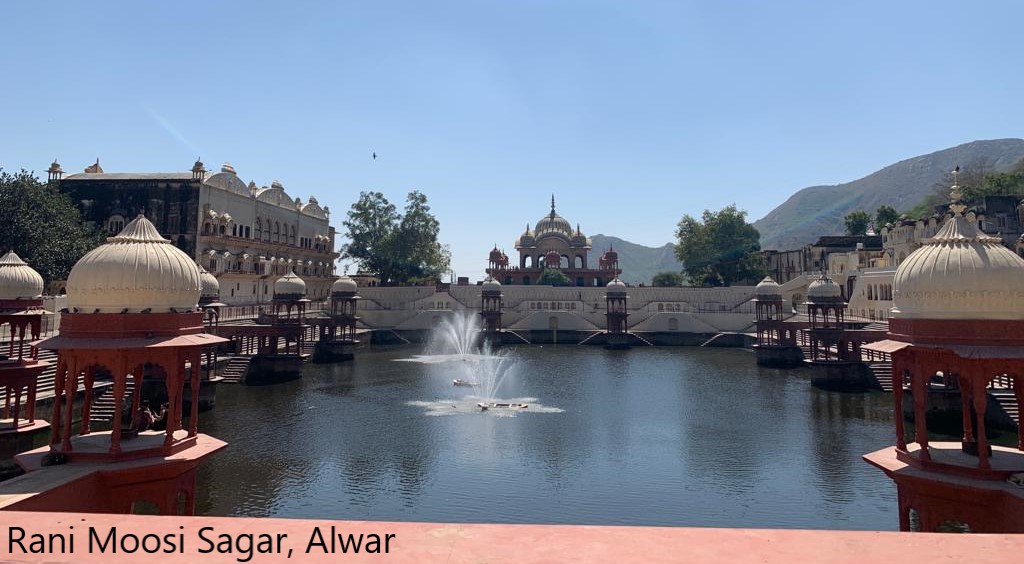
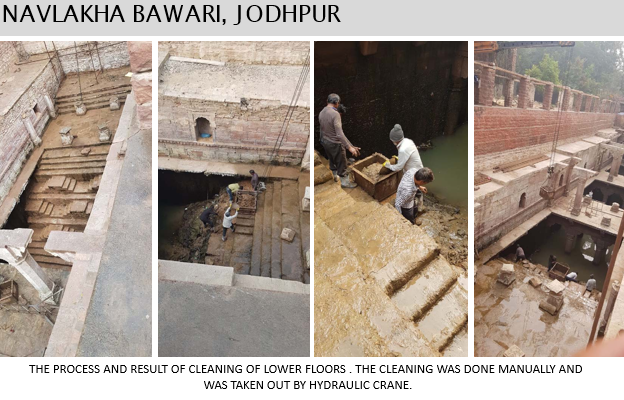
We are currently restoring another historic stepwell, the 300-year-old Navlakha Bawri of Jodhpur. The Navlakha Bawri was built in the 1700s near Jagat Sagar Lake during the reign of Maharaja Abhay Singh. Over the years, the Bawri has fallen into disrepair, littered and choked with vegetation, and its artistic pillars crumbling. When restored, the Navlakha Bawri stepwell will benefit around 5,000 people living in the villages nearby.
The Foundation has also invested in antiquity. Do shed light on this connection with India’s past and its preservation.
Hinduja Foundation is the custodian of an invaluable archive of historical Indian artefacts, at the core of which is the Lance Dane bequest. This is a collection of 35,000 ancient Indian coins ranging broadly from 600 BCE to 600 CE, as well as paintings, bronzes, stone sculptures, beads and other artefacts collected over five decades by army veteran Lt. Col. Lance Dane. As a continuation of our Foundation’s long-standing commitment to promoting and studying Indian art and culture across the globe, we strive to take our Antiquities Collection to new venues and audiences through partnerships. The collection has been a subject of continuing PhD research. Additionally, we bring it to the larger public through the HindujaHeritage.com website, workshops and publications.
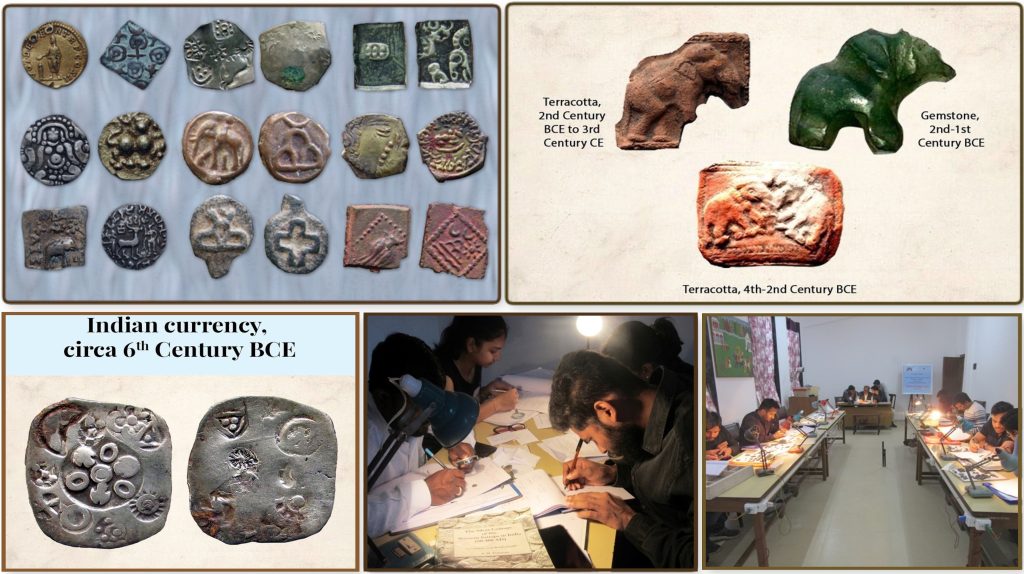
We will continue to scale our interventions in the fields of water, health, education and rural development. In November 2023, we hosted nationally recognised organisations for a symposium in Mumbai titled, Water Practice & Policy. The aim is to collectively address one of India’s biggest resource concerns in the years and decades to come. We plan to bring experts together and build a repository of water solutions that the public can access and contribute towards. Our Group’s water projects now serve more than five million beneficiaries across India.
What have your partnerships with the local or central government achieved over the years? Kindly elaborate on these partnerships and their impact on the various communities and groups.
Government partnerships are often a recognition of the work done by the Foundation.
In Tamil Nadu, our teams work with the Education Department and ensure there is no duplication of effort. Our uninterrupted communication with officials from the State Education Department ensures that our work complements government efforts and reforms and thus magnifies the impact.
In Palghar, we collaborate closely with the Local Collector to facilitate farmers’ access to various government schemes and programmes. Our goal is to ensure that these funds are utilised optimally by farmers to reap maximum benefits. Overall, there is an active effort in all our projects to synchronise with local authorities and government bodies.
What is the Foundation’s growth plan and initiatives for the future?
We will continue to scale our interventions in the fields of water, health, education and rural development. In November 2023, we hosted nationally recognised organisations for a symposium in Mumbai titled, Water Practice & Policy. The aim is to collectively address one of India’s biggest resource concerns in the years and decades to come. We plan to bring experts together and build a repository of water solutions that the public can access and contribute towards. Our Group’s water projects now serve more than five million beneficiaries across India.
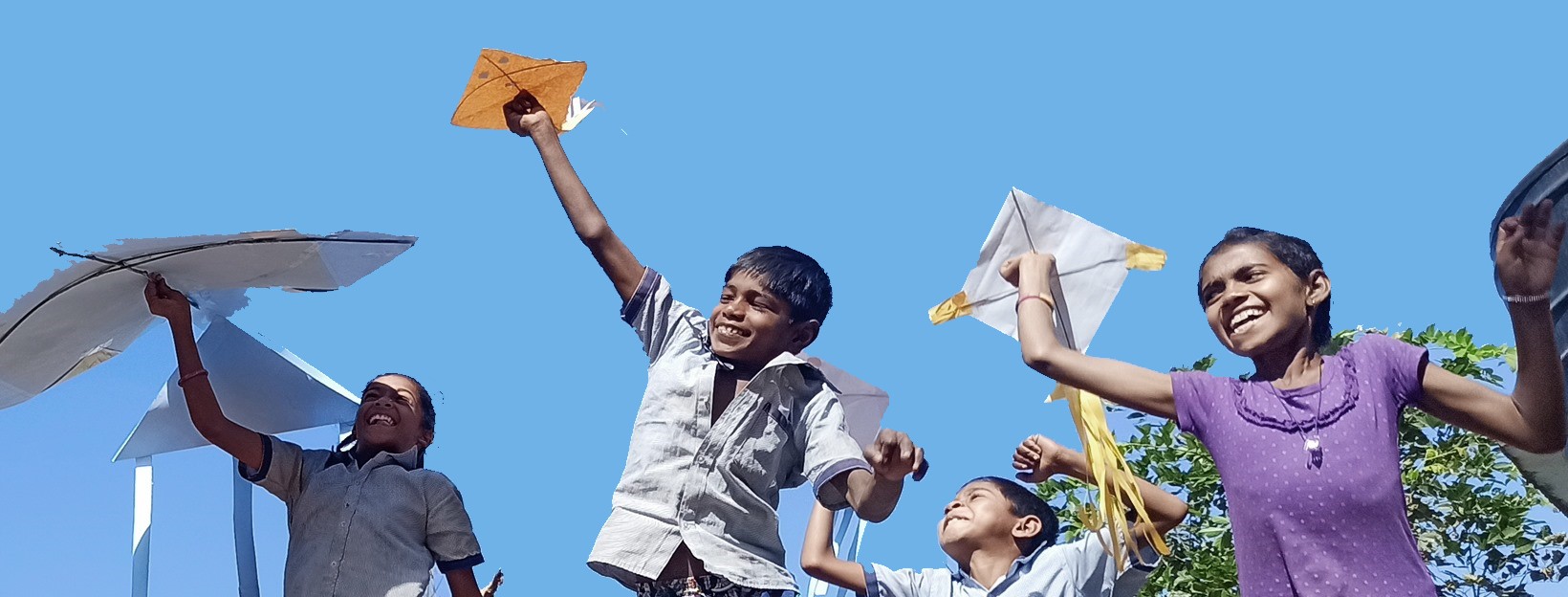
In education, we have embarked on an ambitious upgrade of curricula development and physical infrastructure at the KPB Hinduja College of Commerce in Mumbai. We have initiated a redevelopment project to build a state-of-the-art campus that will expand the College’s scope and provide multi-disciplinary education. Education programmes like Road to School and our other engagements in foundational literacy, livelihood development and nutrition support will continue to expand their network and scope. Today, we impact more than 4.3 lakh students annually across 6,000+ schools in India.

